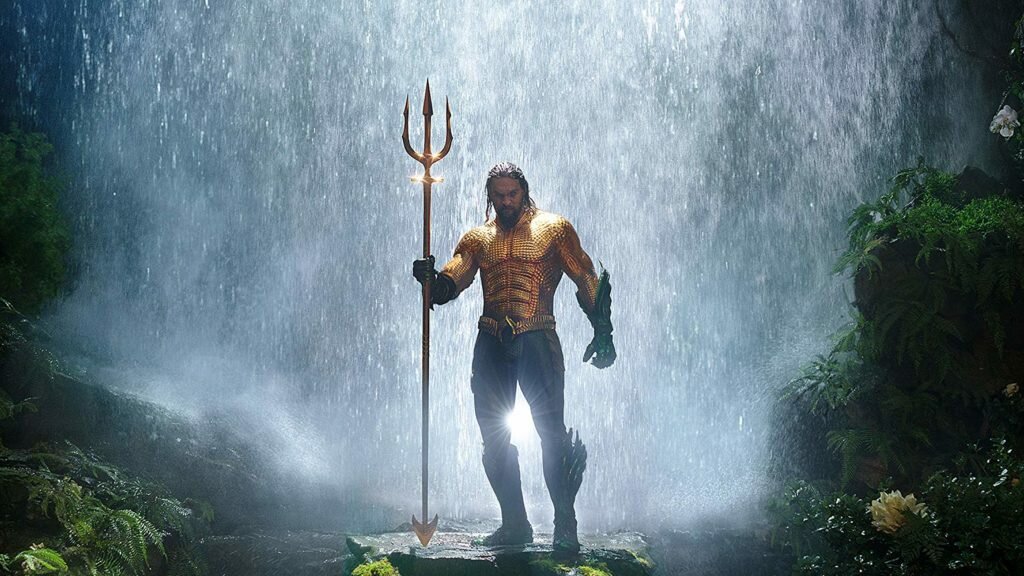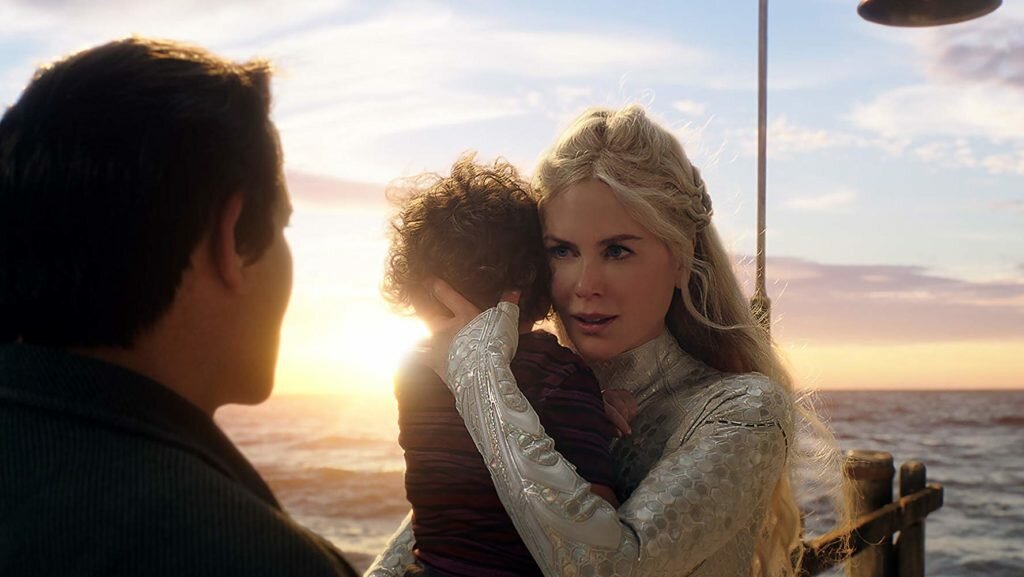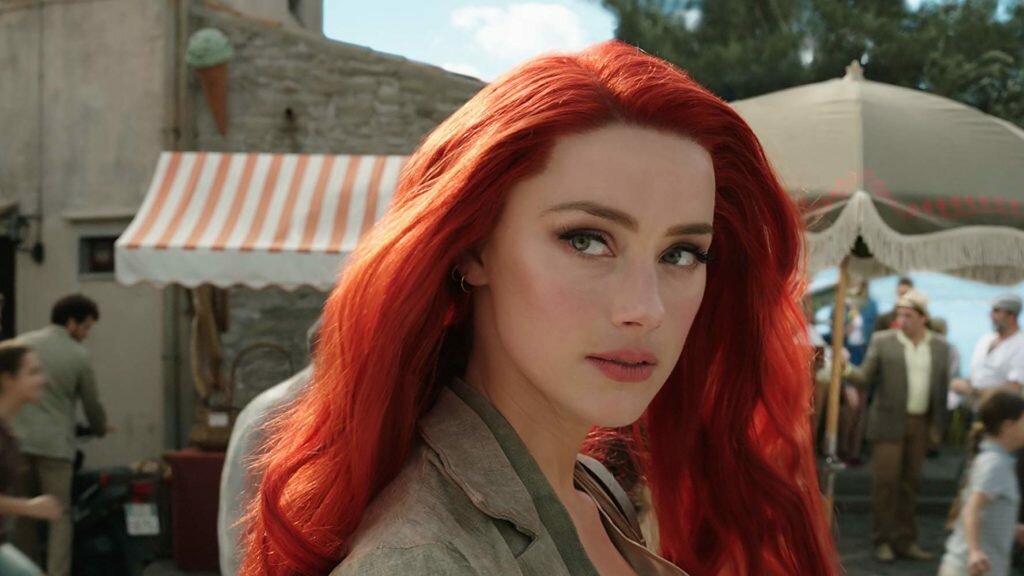The DC Extended Universe has all but fallen apart as aspirations of replicating Marvel’s interconnected universe seem all but gone. Instead, DC is squeezing what it can out of its existing superhero series that culminated in 2017’s underwhelming Justice League. Though Aquaman exists in the same world as Justice League, there’s little acknowledgment of the previous films; directed by horror expert James Wan, Aquaman is a standalone adventure that refocuses the DCEU. Gone are the drab, gritty stories that sucked the joy of Superman and Batman and in there place is a jubilant, absurd tale of war beneath the waves. DC started by mimicking Marvel’s interwoven series structure, with Aquaman it has moved on to copy the MCU’s lighthearted tone with mixed results.
Soft-Shell Reboot
Aquaman is a chip off the ole ‘bastard-prince becomes king’ block; Arthur’s mother Atlanna (Nicole Kidman) was an Atlantean queen who ran away from an arranged marriage and had a child with Tom Curry (Temuera Morrison), a human lighthouse keeper. Their child, Arthur Curry AKA the Aquaman, was kept hidden: a bastard with royal blood. Eventually, of course, Arthur’s destiny catches up with him and he follows Princess Mera (Amber Heard) beneath the waves to Atlantis where he wrestles the crown from his bloodthirsty half-brother, Orm (Patrick Wilson).

Despite a plot structure that feels all too familiar, Wan clearly isn’t interested in grounded storytelling — Aquaman brazenly breezes past potential plot hiccups with a style seldom seen in comic book films. It’s a well-needed slap to the face of the grimdark attitudes and self seriousness that plagues other DC films, actively lifting Aquaman out of mediocrity by sheer force of strangeness. Wan’s focus on style over substance pays off; as tired, trite, and tedious as Aquaman’s story can be, it’s hard not to smile at Momoa’s skull-cracking, spear-stabbing, super-punching enthusiasm.
Wan’s commitment to flare carries over to the film’s copious action sequences which are more coherent and kinetic than almost any other in the DCEU; every trident-wielding face-off hits hard and fast, without getting too visually busy. Several of the fights feature long takes that follow one character as they flit around a cramped living room or fly across Italian rooftops. There is a lot of variety to these moments, all of which pop with colour while the longshots lend the fights a fluid, dance-like grace that stands apart from other action blockbusters.

Momoa embodies a free-spirited, exuberance with his powers. The thrill of the fight is apparent in every whoop, cheer, and taunt he makes while battling pirates or Atlantean guards. Even in the character’s darkest moments, Momoa maintains Arthur’s strength and good spirit. He actually seems to enjoy being superhuman, making him more exciting to watch than the standard DCEU super brute.
The same praise can’t be said for the supporting cast. Mera, in particular, is the worst kind of superhero love interest: flat, underdeveloped and inconsistent. Their relationship has the depth of a middle school fling with Mera hating Arthur’s brutish ways almost as much as he hates her snobbiness. Fortunately, a quick walk around a beautiful Italian village changes everything and suddenly love being in the air doesn’t feel outright absurd. Still, the stilted writing makes it difficult to derive any joy from their affair.

Orm is a standard, warmongering menace: happy to cause misery in the name of preventing it. On his quest to become Ocean Master (king of kings of the sea), he slays hundreds of Atlantis’ uncooperative elite, but for all his childish blustering and needless killing, Orm has a point. He wants the surface world to pay for their wanton polluting of the oceans and frivolous acts of naval violence. Images of floating trash and leaking oil rigs backup Orm’s anger and make a compelling case for his murderous mentality. Wan doesn’t spend much time explaining Orm’s motivation, but his aggression towards the surface — and towards the viewer — is earned and convincing.
Classic Aquaman villain Black Manta (Yahya Abdul-Mateen II) also makes an appearance, blasting his way through submarines and seaside villages. The character is decently motivated — he’s spurred on by the death of his father at Arthur’s hand — but Abdul-Mateen’s performance is so over-the-top that Manta’s justifiable desire for revenge is overshadowed by Abdul-Mateen’s absurd screams, grunts, and cries. At least the suit looks cool though, leading to a showdown that thanks to the physical nature of the armor, carry more weight than the film’s other blowouts.
But the fights are also where Aquaman begins to buckle under its own enormity; the film breaks real-world logic and it’s internal logic too often to ignore. Atlanteans have either impenetrability and strength of Superman or are as brittle as glass. King Orm and Arthur are well matched, but the royal lackeys go down in a few well-choreographed hits. Arthur also rides the line between powerful and powerless; “Arthur’s skin can only be split by Atlantean steel” we’re casually told, but several scenes later he’s sliced by a rusty knife. Is it this famous Atlantean steel? Was he stabbed in a preexisting wound made by the subnautical steel? Who knows. The physics of Wan’s world are outlandishly rendered; it’s hard to ignore the absurdity of a grenade fight in a missile silo where none of the bombs burst or the illogic of the Atlanteans only developing the ability to breathe underwater after their civilization sinks.

Aquaman, like Wonder Woman, is only good by the Marvel standard wherein simple plots, vaguely sketched villains, and endless CGI setpieces are the norm. Graded on that curve Wan’s foray into big-budget bombast fares pretty well; the film’s hero is charismatic, the action appealing and the world well designed, if poorly explained. There’s just enough there to forgive the film’s transgressions and wade into Wan’s wild, globe-spanning adventure with an open-minded optimism.


Leave a Reply